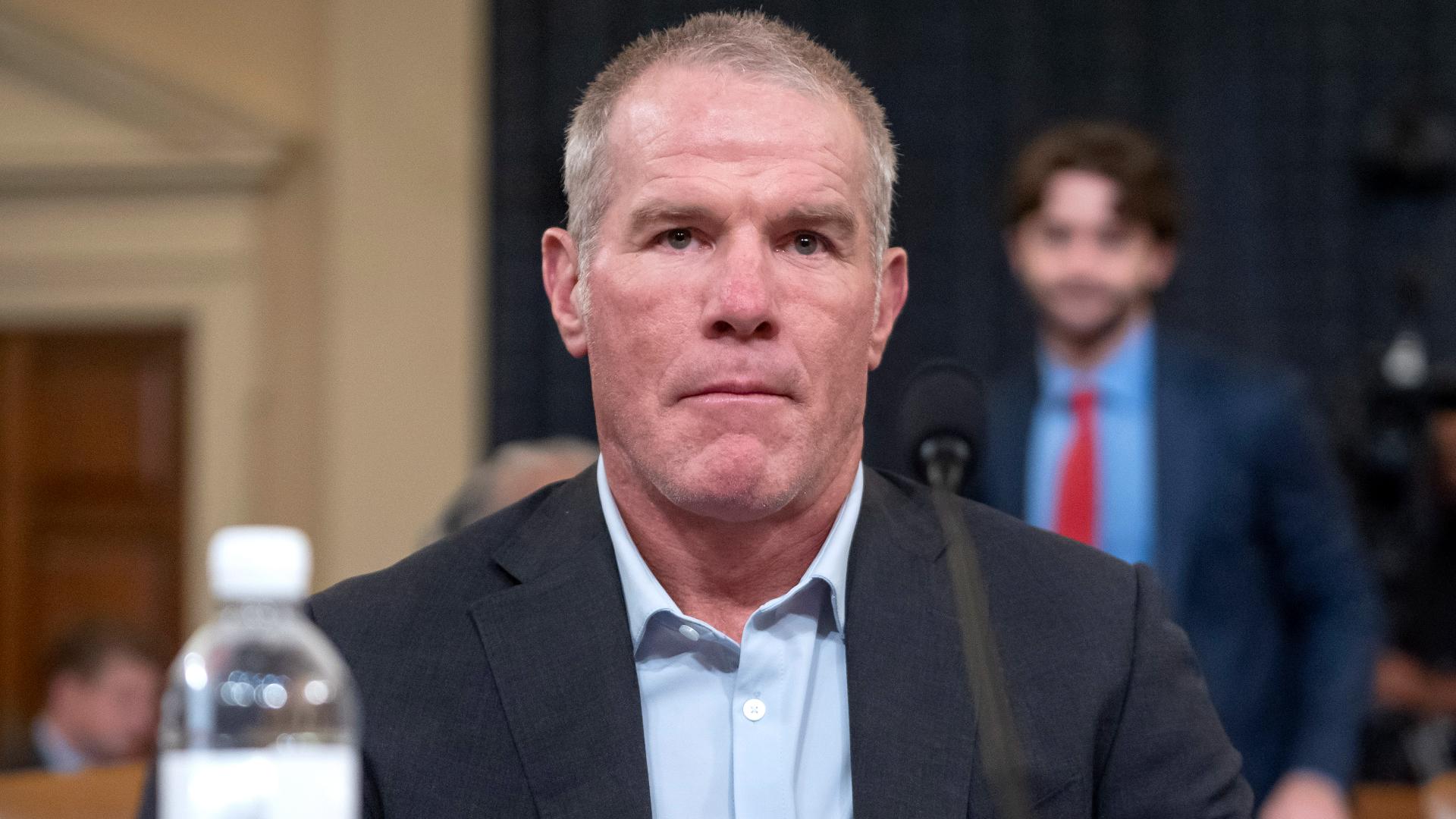MINNEAPOLIS, Minnesota — For decades, the "Gunslinger" was synonymous with the gridiron. Now over a decade after his retirement, Brett Favre's time on the football field likely led to his big announcement on Tuesday that he was diagnosed with Parkinson's Disease.
Parkinson's is a nervous system disorder that begins with symptoms of mild tremors, stiff or jerky muscles, or decreased ability to move quickly or automatically. According to the Mayo Clinic, patients in the early stages can experience depression, anxiety, fatigue and memory issues.
There is currently no cure for the disease.
"I think is very courageous for Brett to share this very difficult diagnosis with the world," neuroscientist Dr. Chris Nowinski said.
Nowinski is one of the most recognizable forces fighting football head injuries in the country. The Harvard football player turned pro wrestler retired from the ring after experiencing multiple concussions.
Since then, he's been on a crusade to raise awareness on concussions, helping create Boston University School of Medicine's Center for the Study of Traumatic Encephalopathy (CTE). CTE is a degenerative disease affecting people who have experienced multiple concussions or traumatic brain injuries.
"As a young football player, I thought this guy is a god and it's hard to see what's happening to him now," Nowinski said. "Because of all those things we idolized may have contributed to what he is going through today."
Nowinski is the CEO of the Concussion Legacy Foundation which helps connect people with resources and care for concussions and CTE. He said the conversations around treating and preventing head injuries has improved but there is a ways to go.
Just on Monday, a study from medical journal JAMA Neurology revealed one third of former professional football players surveyed believe they have CTE.
The findings stem from a Harvard University survey of football players whose careers spanned from 1960 to 2020. Of the 1,980 respondents, 681 reportedly believe they have CTE. More than 230 reported experiencing suicidal thoughts, and 176 reported a diagnosis of Alzheimer's disease or other form of dementia.
"There was a study that came out earlier this year that showed you can have Parkinsonism which are features of Parkinson's Disease, when you have CTE," Nowinski said.
Favre, 54, has publicly come out saying he believes he has CTE and once said in an interview that he likely experienced a thousand concussions playing football.
Concussions have shown direct links to Parkinson's Disease. The American Parkinson's Disease Association (APDA) said roughly 90,000 people are diagnosed with the disease each year, and 1 million people in the United States are living with it.
"It's sad to hear this diagnosis for him but I think this announcement can kind of make people feel like they don't have to hide their diagnosis," Dr. Allyson Connor, an Allina Health neurologist and APDA medical director, said.
Connor is optimistic about current research for a Parkinson's Disease cure and hopes Favre's announcement can bring more attention to finding one.
"Slowly month by month, year by year, patients see their symptoms get worse," Connor said. "Unfortunately, aside from exercise we are not able to slow that process down right now."
Favre posted a statement of gratitude for the well wishes he's received on Tuesday night, mentioning a special thanks to his wife, family and friends for their support.
As fans have sent kind words his way, others are expressing criticism of the game of football.
"The industrialization of youth contact sports is a very recent phenomenon, and we do need to have conversations about whether children should be taking the same risks that Brett Favre did on an NFL field," Nowinski said.

